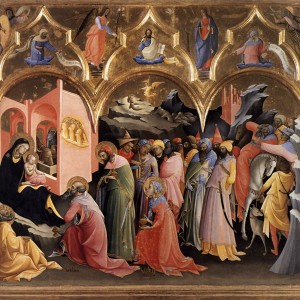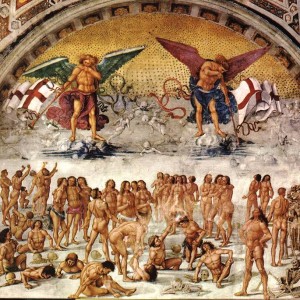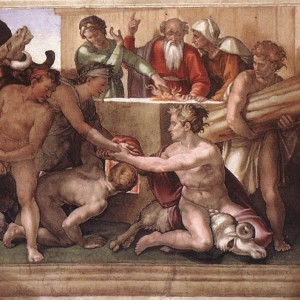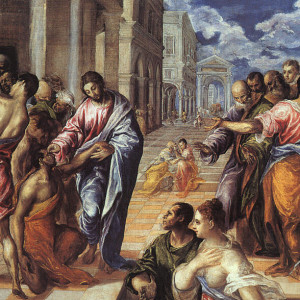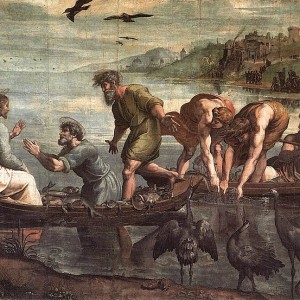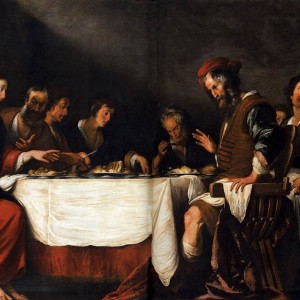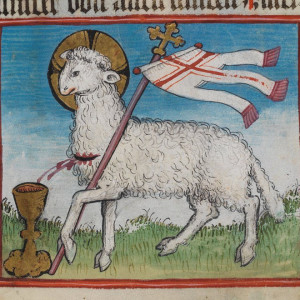In its rush to enter “the Christmas season,” the world has forgotten about the holy season of Advent. That’s a pity, because if we’re going to welcome Christ into our hearts this Christmas, we need to take the time to make room for Him. Here are 6 ways that you can reclaim Advent.
Tag: Bible
The Best Reason for Priestly Celibacy You’ve Probably Never Heard
We all know that priests, monks, and nuns are celibate, but why? Is it just an arbitrary Church rule? Is it just for pragmatic reasons, like ensuring that the priest has enough time to minister to the People of God? Or is there a deeper, prophetic meaning to celibacy?
Did Jesus Oppose Animal Sacrifice?
A Protestant website suggests that Jesus hated the Jewish sacrificial system. This claim is obviously false, given that (1) God established the Jewish sacrificial system; (2) Jesus personally participated in it; and (3) the sacrificial system reached its apex on Calvary, when Jesus became our Sacrificial offering.
Abbot Christian de Chergé on Islam and Terrorism
The awful terrorist attacks unfolding right now in Paris recall for me the martyrdom, at the hands of Islamic extremists, of a group of French monks living in Algeria. The abbot of those monks prepared for his death with a shocking, thought-provoking “Last Testament.” It’s worth the read.
Did St. Paul Use the Deuterocanon?
The Catholic Deuterocanon – the set of seven books accepted by Catholics and rejected by Protestants – clearly teaches the morality of praying to the Saints and praying for the souls of the deceased. But can we trust that the Deuterocanon is canonical? Evidence from Romans 9 — a favorite passage amongst many Protestants — strongly points to a “yes” answer.
Be Bartimaeus.
Be Bartimaeus.
The Gospel presents Bartimaeus to us to show us that this is what it looks like to follow Jesus. This is what we’re called to. So what can we learn from him? I would propose three things: (1) see your blindness; (2) beg boldly; and (3) make Jesus’ Way your way.
The Repulsiveness of Christ
When we’ve tried everything we can think of to lead someone to Christianity and it doesn’t work, it’s so easy to blame ourselves: to think that if we had done everything just so, or found just the right combination of words, everything would have clicked, and they would have accepted Jesus Christ. If we were only a little more compassionate, or a little smarter, or a little more persuasive in our speech. This reaction is discouraging, and what’s more, it’s often false. It gets three things wrong: grace, free will, and Jesus.
How Richard Dawkins Helps Prove Biblical Inspiration
When Richard Dawkins and American Atheists write off the Bible as a “Bronze aged book,” they’re only demonstrating their historical ignorance and the strength of the case for Biblical inspiration. If the human authors of Scripture were primitive ignoramuses, how do we account for the credibility of the Apostles’ testimony?
The First Step in Learning to Forgive
Every day, when we pray the Our Father, we ask God to “forgive us our trespasses as we forgive those who trespass against us.” If we refuse to forgive others, we’re asking God to hold us to our own unforgiving standard. This is a hard message, because it’s hard to forgive others when we’ve been hurt. Jesus recognizes it. When He introduces the Our Father, this is the only one part He feels the need to explain. But He doesn’t say “forgive, unless it’s hard.” He says, “if you forgive men their trespasses, your heavenly Father also will forgive you; but if you do not forgive men their trespasses, neither will your Father forgive your trespasses” (Matthew 6:14-15).
7 Mysteries of the Faith Unlocked by the Eucharist
The scroll and seven seals of the Book of Revelation couldn’t be opened without the Lamb standing as though slain, the Eucharistic Christ. Here are seven other mysteries of the faith that we need the Eucharist to unlock: (1) the New Covenant; (2) the Old Covenant; (3) the Mass; (4) Early Christianity; (5) the Church; (6) the lives of the Saints; and (7) your own spiritual life.
